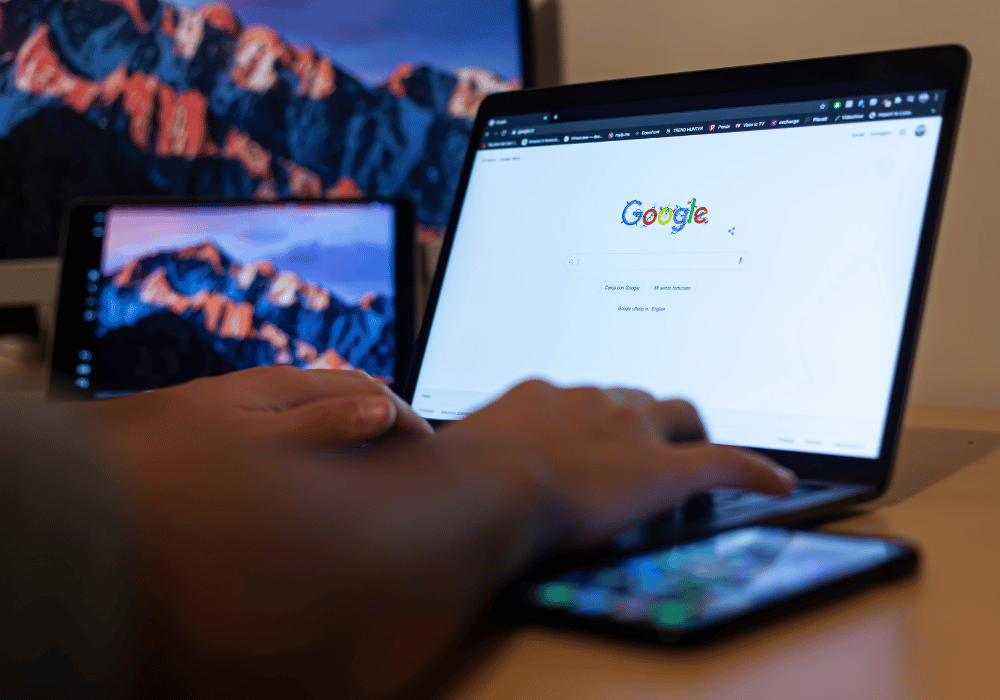SEO (Search Engine Optimization) has always been a complex and evolving discipline, but we are now in the midst of an era where artificial intelligence (AI) is rapidly rewriting the rule book. Whether refining Google’s algorithms, streamlining content creation, or improving user experiences, AI is fundamentally altering every aspect of search optimization.
But how exactly does AI affect SEO, and what does this mean for businesses and marketers aiming to stay ahead of the curve? This blog dives deep into the relationship between AI and SEO, exploring challenges, opportunities, and actionable steps for success in the AI-optimized world of search.

The Evolving Role of AI in SEO
AI’s integration into SEO started modestly but has become increasingly sophisticated. From Google’s RankBrain, which introduced machine learning to interpret user intent, to AI-driven content generators, the influence of AI has grown exponentially.
Here’s how AI is shaping the core pillars of SEO today:
Enhanced Search Algorithms
Google’s RankBrain and subsequent AI-powered updates like BERT use machine learning to improve search accuracy by interpreting intent instead of relying purely on keywords. This shift toward semantic search ensures that users get results that are contextually relevant rather than formulaic. For businesses, this means optimizing content to align with queries based on “what users are looking for” rather than keyword stuffing.
Smarter Content Creation
AI-powered tools such as ChatGPT, Jasper, and SEO.ai allow marketers to create engaging content faster. AI can generate ideas, write detailed outlines, and even draft full articles. However, these tools are best used as collaborators—not replacements. Adding a human touch is vital to ensure the content is relatable, accurate, and creative enough to address audience needs.
Personalization at Scale
AI is a key driver of personalized SEO strategies. Tools now analyze user behavior, preferences, and past interactions, creating tailored recommendations for content, products, and even call-to-action placements. For marketers, this level of analytics opens doors to engage audiences with hyper-relevant messaging.
Benefits of Using AI in SEO
Integrating AI into your SEO strategy unlocks numerous advantages, transforming how businesses approach optimization:
1. Improved User Experience
AI ensures that users encounter content highly relevant to their search queries. Predictive algorithms and contextual comprehension reduce frustrations caused by irrelevant search results and improve engagement, retention, and conversions.
2. Time Efficiency
AI tools automate time-consuming tasks like keyword research, data analysis, and site audits. For instance, platforms such as Clearscope can analyze search intent and recommend content improvements in minutes instead of hours.
3. Real-Time Adaptability
SEO has always been dynamic, with algorithm changes frequently requiring businesses to pivot. AI tools can quickly adapt to new trends by analyzing data in real time, ensuring that strategies remain competitive even as search engines evolve.
4. Enhanced Decision-Making
AI doesn’t just process vast amounts of data; it draws actionable insights from it. For example, AI tools can predict which keywords will deliver the greatest ROI or highlight which technical SEO elements are negatively impacting rankings.
Challenges of AI in SEO
While the benefits are undeniable, the integration of AI into SEO systems is not without challenges.
Quality vs. Quantity
AI tools have made content production more efficient, but they’ve also increased the risk of quantity overshadowing quality. Content that is poorly written, repetitive, or irrelevant can easily backfire, leading to search penalties and eroding user trust.
Dependence on AI Insights
AI-driven insights are only as good as the data fed into them. Relying too heavily on AI-generated strategies can lead to a loss of creativity and authenticity, which are essential in connecting with human audiences.
Ethical Concerns
AI-generated content has raised ethical questions about authenticity, originality, and plagiarism. Google has been clear about valuing user-first content over keyword manipulation or algorithmic trickery.

How to Leverage AI for SEO Success
To make the most of AI while minimizing risks, businesses should follow these best practices for integrating AI into SEO strategies effectively:
Focus on E-E-A-T
Google’s E-E-A-T guidelines (Experience, Expertise, Authoritativeness, and Trustworthiness) remain a critical marker of high-quality content. While AI can assist considerably in research and drafting, human intervention is still necessary to maintain expertise and inject unique insights into the content.
Use AI for Optimization, Not Replacement
AI tools excel at supporting optimization efforts beyond content creation. They’re invaluable for tasks such as keyword analysis, link-building insights, and even monitoring site health. For instance, tools like Screaming Frog powered with AI extensions can flag technical SEO errors faster than a manual audit.
Optimize for New AI-Driven Search Platforms
Emerging AI platforms like Google AI and ChatGPT are shaping how users search for information. Businesses should consider optimizing for these conversational interfaces by embedding natural language and FAQ-style content within their pages to ensure discoverability.
Balance Creativity with Analytics
While AI provides data-driven recommendations, it often lacks the emotional nuance and imagination needed to create meaningful and engaging content. For this reason, successful SEO strategies will continue to rely on a blend of AI-optimized efficiency and human creativity.
Preparing for an AI-Driven SEO Future
AI is not simply a tool but a force transforming SEO. Businesses that leverage AI to amplify their strategies—not replace foundational principles of user-first, quality-driven optimization stand to thrive in the evolving digital landscape. By pairing AI’s speed and analytics capabilities with human insight, businesses can create smarter SEO strategies that cater to both search algorithm expectations and actual human needs.

